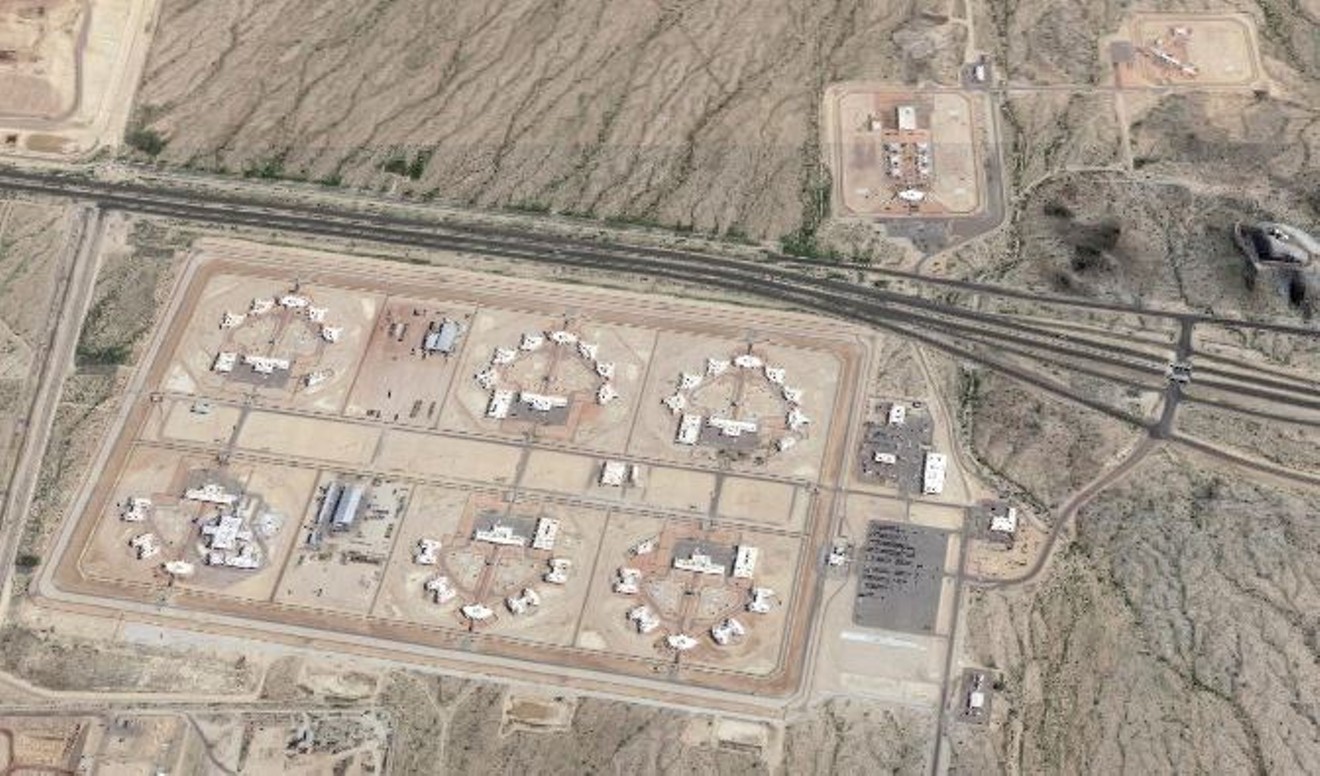Arizona prison food contractor Trinity Services Group is investigating its suppliers following reports that inmates were served meat labeled "not fit" or "unfit" for human consumption.
Despite these claims, the company told the Arizona Department of Corrections that no food labeled "unfit for human consumption" is being served at Arizona state prisons.
"The allegations that it served food to inmates that was 'unfit for human consumption' are unfounded and without merit," Trinity Chief Operating Officer David Miller wrote in a letter on Monday to ADC's acting director, Joe Profiri.
Profiri directed Trinity last Thursday to "immediate[ly] investigate ... its supply chain and food delivery system to the fullest extent possible," after Phoenix New Times reported that former inmates at Perryville said they saw meats labeled "not for human consumption" delivered to the prison or served there.
Both Trinity and ADC denied those claims, even as local correctional officers, in a private Facebook group, simultaneously mocked and corroborated the ex-inmates' allegations.
In his letter, Miller maintained that "Trinity only sources food products which meet or exceed all Federal, State and Local requirements."
That letter served as a preliminary response to Profiri's request for an investigation, and it laid out a timeline of steps the company planned to take to probe the claims about its food.
So far, the company has identified all of its Arizona prison food suppliers, Miller wrote, and on Monday, it was scheduled to send each of them formal notices to inspect inventory and confirm that no products labeled "unfit for human consumption," or anything similar, were "on hand."
Trinity's suppliers would also have to state in writing by Wednesday that they would never sell Trinity any products labeled "unfit for human consumption."
He promised to provide ADC with a summary of Trinity's findings on Thursday, October 3.
The company's contract with ADC requires it to follow federal, state, or local health standards, but those requirements are evasive and nebulous.
ADC's 14-page food manual, which has been in place since September 2015, says that prisons must follow applicable laws and regulations in Arizona's food code and the department's own food services regulations. The manual itself does not spell out those requirements.
Arizona food code states that "food shall be obtained from sources that comply with law." It requires food to be "safe, unadulterated, and ... honestly presented." Much of its chapter on sourcing focuses on proper labeling and inspection.
Nowhere does it expressly forbid the serving of food labeled "not for human consumption," but then again, that warning seems to state the obvious.
Another area teeming with potential loopholes is donated food, which ADC expects its contractor to use and serve to inmates.
Trinity's contract includes a 29-page food technical manual, more detailed than the 14-page food manual readily available on ADC's website, in which ADC urges the contractor to "reduce overall operational expenses where possible," including by "utilizing surplus food," taking produce from local food banks, and "utilizing produce/product from Institutions." The manual does not define "Institution."
The manual also states that Trinity should purchase from ADC any foods that were donated to the department.
Contractor staff "shall take advantage of all surplus/donated foods provided to the Department of Corrections to be purchased by the Contractor and utilized in food service," the technical manual states. "The Department and Contractor shall work together to ensure surplus/donated foods are used to the fullest extent."
It was not immediately clear whether the local food banks and "institutions" that donate foods to prisons or ADC would fall under the purview of Trinity's investigations.
A spokesperson for Trinity previously told New Times that the company does not accept food bank donations.
The requirements in the Trinity contract itself specify the quality of meat served in prisons. For example, all beef must be either a "select" grade, or "no roll." ("No roll" means beef that has not been graded by the U.S. Department of Agriculture. Grading is an optional process that is different from safety inspections, which are mandatory.)
Trinity's contract was awarded in 2012 and took effect in 2013. ADC currently pays Trinity about $40 million annually to provide 19 meals per week to the roughly 41,500 men and women incarcerated in the state prison system. It raised its prices 1 percent in 2017; it now charges ADC anywhere from $1.26 to $1.37 per meal.
Trinity did not respond to questions from New Times about its food suppliers, about its investigation, or about any documented complaints from its vendors about its food.
The ADC's Inspector General is also conducting a fact-finding investigation into the claims of "not fit" meat, according to ADC spokesperson Andrew Wilder.
[
{
"name": "Air - MediumRectangle - Inline Content - Mobile Display Size",
"component": "18478561",
"insertPoint": "2",
"requiredCountToDisplay": "2"
},{
"name": "Editor Picks",
"component": "16759093",
"insertPoint": "4",
"requiredCountToDisplay": "1"
},{
"name": "Inline Links",
"component": "17980324",
"insertPoint": "8th",
"startingPoint": 8,
"requiredCountToDisplay": "7",
"maxInsertions": 25
},{
"name": "Air - MediumRectangle - Combo - Inline Content",
"component": "16759092",
"insertPoint": "8th",
"startingPoint": 8,
"requiredCountToDisplay": "7",
"maxInsertions": 25
},{
"name": "Inline Links",
"component": "17980324",
"insertPoint": "8th",
"startingPoint": 12,
"requiredCountToDisplay": "11",
"maxInsertions": 24
},{
"name": "Air - Leaderboard Tower - Combo - Inline Content",
"component": "16759094",
"insertPoint": "8th",
"startingPoint": 12,
"requiredCountToDisplay": "11",
"maxInsertions": 24
}
]











